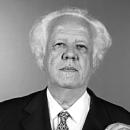
'Translators' bring hope above all else
Last week, I saw the Tribeca Film Festival Premiere of a short and beautiful documentary called Translators, lovingly directed by the Hispanic director R
MÁS EN ESTA SECCIÓN
Last week, I saw the Tribeca Film Festival Premiere of a short and beautiful documentary called Translators, lovingly directed by the Hispanic director Rudy Valdez. It is the story of three immigrant families from Venezuela, Colombia and Guatemala, who came to the United States with their families in search of a better life. The first difficult barrier for immigrants is often language — the parents in this film do not speak English. But their children do — 11 million of them.
The story is seen through the eyes of three children whose knowledge of the English language puts them in the position of having to serve as translators for their parents. Despite being only 11, 13, and 16 years old, it is these bilingual children who must navigate the legal, medical, and education worlds in order for their families to survive.
It is a difficult and ongoing issue for many immigrants, but what the film captures so remarkably well is the hope, optimism, and strength of these families as they embrace the American Dream. Through interviews with the children and their parents, we see the young children rise to the occasion. They function well above their years. One child translates for her parents as a doctor describes the ear surgery her little sister must undergo. Another translates at a parent-teacher conference. They help their parents navigate their new world. And without question, they get their strength from their families.
The film pays homage to these young people, whose love and responsibility help their families ease into American life. Often parents have degrees and titles earned in their native countries, but they're useless here without English language skills. But as their children translate, we come to see the strength of these families, the presence of the parents in their children’s lives, and the sacrifices made to improve their lives.
In short, we see that the immigrant experience is nuanced. It is filled with hard work and many struggles, but at the heart of it is hope. We see glimpses into the future, too, as the young translators pursue their own passions — art, dance and math — and how life in the States turns passions into practical pursuit.
CONTENIDO RELACIONADO
Language as barrier. Language as access. The mighty children bridge the two.
There is another exceptional thing about this film, and it is how it was made. U.S. Bank funded the entire film project. But they put their money where their mouth is. The film is part of their Access Commitment, which is dedicated to reaching out to communities that are underserved and underbanked. They understand that language is access and offer Spanish-speaking services to the Hispanic community that open the financial services world in critical ways.
Interestingly, We Are All Human is just about to release a new Hispanic Sentiment Study, and among its findings is that for the generations of Hispanics coming up, their increased pride in being 100% American and 100% Hispanic is causing a surge of bilingual English/Spanish speakers. What this underscores is that companies wishing to reach Hispanics would do well to do some of their marketing in Spanish, not just to make it understandable, but as a way to build relationships.
Translators won for Best Short in the Tribeca X Award Competition. You can watch it here. It’s well worth seeing.






DEJE UN COMENTARIO:
¡Únete a la discusión! Deja un comentario.